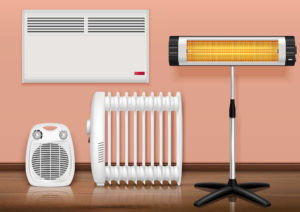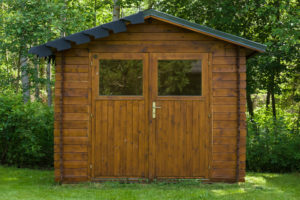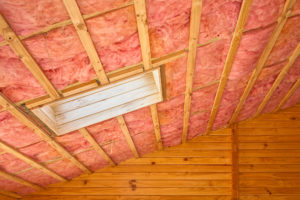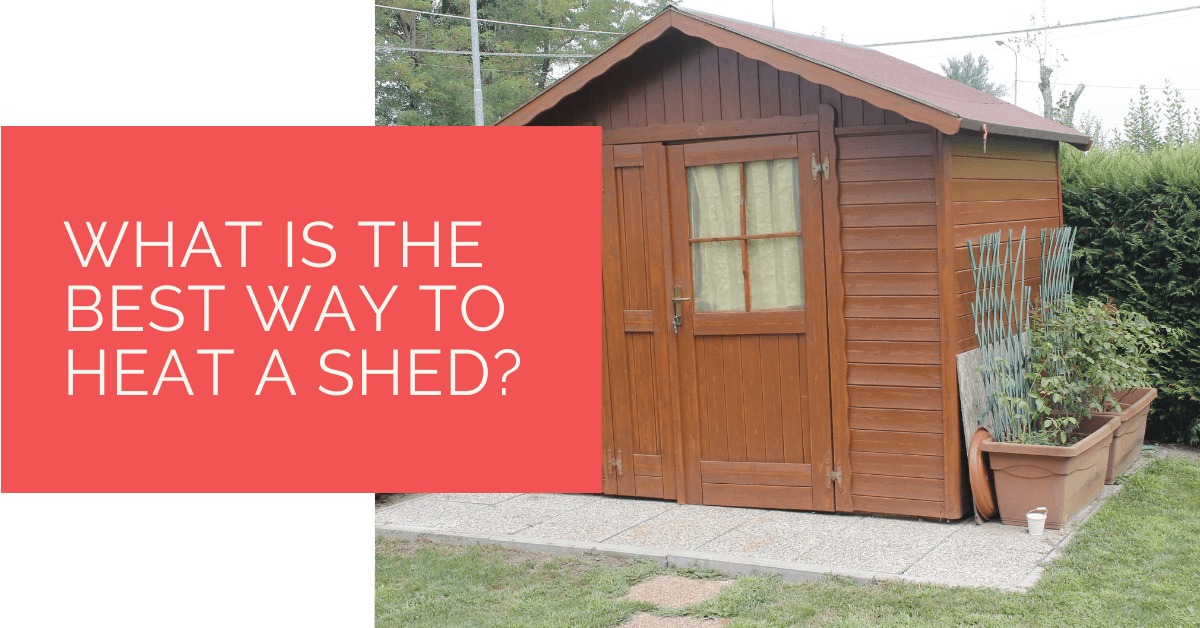Do you often wonder how to keep your sheds warm in the chilly UK weather? In this article, we answer your question of how best to heat your sheds.
Since homes have a stable power supply and proper insulation, it is convenient to stay snug inside. Meanwhile, the sheds tend to get chilly quickly, making working or relaxing difficult.
If you believe that the solution to heating your shed is simple and that any generic heater will do the job, you are wrong! Read more to find the best fit for your shed, depending on its size, purpose, and how much you are willing to spend on it.
Contents
- 1 Key Takeaways
- 2 Why Should You Heat a Shed?
- 3 Ways to Heat a Shed with Electricity
- 4 Ways to Heat a Shed Without Electricity
- 5 How to Keep a Shed Warm when You Are Not Present
- 6 Tips for Insulation to Retain Heat
- 7 How to Heat a Shed for Free
- 8 FAQs
- 9 Heat Pump Source: Reliable Heating and Cooling Solutions
- 10 Wrapping Up
Key Takeaways
- Heating a shed in the UK is essential to make it usable for various purposes, and the choice of heating method depends on factors like shed size, budget, and access to power.
- If you have access to electricity, options include electric space heaters, fan heaters, electric radiators, infrared heaters, and halogen heaters.
- If you don’t have access to electricity, alternative heating methods include kerosene heaters, portable propane heaters, wood stoves or log burners, rocket stoves, and clay pot candle heaters.
Why Should You Heat a Shed?
Sheds are an extra multi-purpose space that can be used for anything such as:
- office space
- playroom
- greenhouse
- indoor plantation
- den
- guest room
The harsh, unforgiving winters here in the UK are not convenient to make the shed usable for any of these purposes. To not let this additional space go unused, it is vital to keep it insulated and warm. It makes sense to heat the shed to make it comfortable for use.
Ways to Heat a Shed with Electricity
Depending on the availability and access to electricity, you can choose from various ways to heat your shed.

Electric Space Heaters
Electric space heaters operate on electricity. If the shed has no power supply, use an extension cord long enough to reach the shed.
Electric space heaters are efficient in their functioning and can heat up the space almost instantly.
Tip: If yours is a small shed, opt for a battery-powered electric heater instead since it does not require electricity.
Electric Fan Heaters
Easy to use and affordable, these heaters require electricity and heat the entire shed evenly. Electric fan heaters are ideal for sheds that are not insulated since they emanate heat in powerful bursts.
They stop emanating heat as soon as they are turned off. Keep an eye out for the usage since excessive running hours can turn out to be very expensive.
Electric Radiator
There are two options available for electric radiators- water-filled and oil-filled. These are viable only if they have to be operated for shorter periods. Electric radiators can only heat the space around them, not the entire shed.
Water-filled electric radiators are commonly wall-mounted and do not clutter your shed with pipes. However, if you are looking for a portable heater, then a water-filled electric radiator is not the option for you.
Oil-filled electric radiators generate more warmth than halogen heaters but less than fan heaters. These are also cheaper than the latter since they continue to release heat even after turning off.
Infrared Heater
While infrared heaters have been around for a long time in the UK markets, it has only recently become an affordable option. Infrared heaters resemble the sun’s heating principle – emitting infrared radiation. This radiation is completely harmless, efficient, and has a gradual and gentle heating effect through conduction.
Infrared heaters work differently than others. They warm up the surfaces they are aimed at and not the air. This working principle of infrared heaters helps people warm up faster than other heaters.
A significant benefit of these heaters is that they do not affect the humidity levels in the shed. Since infrared waves have a beneficial effect on the skin molecules, it makes themselves a desirable heating system. While they are suitable for humans’ skin, nerves, and muscles, they are also excellent for animals.
It is highly recommended to use an infrared heater for animal sheds but not for sheds that need to be kept entirely warm.
Halogen Heater
Halogen heaters make an excellent option for a cheap shed heater if you have a tight budget. These are portable and require electricity to function. Both electricity from the local power supplier and solar power can be used.
The main benefit of halogen heaters is that they are available in multiple sizes, making them suitable for sheds of all sizes. However, they are not as powerful as other heaters.
Ways to Heat a Shed Without Electricity
If you do not have access to a power supply, proper ventilation, or heated floors, do not worry!
There are various other methods to keep your shed comfortably heated.

Kerosene Heaters
Kerosene Heaters are a cheaper yet effective alternative to portable propane heaters. It’s the same with propane heaters and kerosene heaters. They do not require electricity but successfully produce a considerable amount of heat.
However, if you use a kerosene heater, you must ensure that the shed is well ventilated.
Besides that, make sure to turn off the heater when not required as any slip-up may cause a fire.
Portable Propane Heaters
If your shed is off the grid and has no power supply, a portable propane heater is just the right thing for you. The most significant advantage of these heaters is that they last longer than battery-powered electric heaters. Besides their longer life, portable propane heaters also generate more heat than them.
Although they are a little more expensive than the other options, they make a worthy investment if the usage is frequent.
Wood Stoves or Log Burners
A historic yet currently prevalent and effective way of heating sheds is installing wooden stoves. As the name suggests, these wooden stoves burn wood to generate heat. This method generates a considerably large amount of heat while adding a rustic aesthetic appeal to the shed.
However, a wooden stove might not be the right option for you if you do not wish to install a chimney for the smoke to exit. Installation of wooden stoves necessitates the installation of a chimney.
While the setting-up costs are high, wooden stoves are cheaper in the long run. All you will have to spend on is purchasing wood to burn.
Rocket Stoves
Don’t want to install an expensive heating system for your shed? Worry not; rocket stoves are a quick DIY heating solution.
All you need is a metal piping system or bricks to make a rocket stove. They only require a source of fuel instead of electricity to generate fire. Overall, rocket stoves are safe and effective for sheds with a large area. However, just as wood stoves, rocket stoves too require a chimney or an alternate smoke exit system.
The option of buying rocket stoves is also available.
Clay Pot Candle Heaters
If your shed does not have electricity and a chimney or a smoke exit system, then the previous two options become invalid for you. Your best bet would be a clay pot candle heater in such a scenario.
Another DIY option, these can be made using readily available components. All you need is a few bricks, candles, and a terracotta pot.
The only drawback of this heating system is that it does not generate much heat, but it does produce heat quickly. Since this heater uses candles, supervision is a must to ensure no fire accidents.
How to Keep a Shed Warm when You Are Not Present
Radiators
Preventing your shed from the chilling UK winters requires periods of safe unsupervised heating. If you have access to a local power supply source, radiators are reliable for unsupervised heating. A significant advantage of radiators is that they can be set to operate all day on a low setting to help maintain the temperature in the shed.
Heated Flooring
An expensive yet effective option is installing heated flooring. Such flooring radiates heat from under you, thus keeping the shed and its interiors warm.
The most significant benefit is that it is a safe method to heat the shed since it does not pose any fire hazards. However, heated flooring is inconvenient to install and requires electricity to operate, making it an expensive option.
Solar Heaters
If your shed falls in a region with sufficient exposure to the sun, make use of solar heaters to keep it warm. It is the safest technology to heat the shed since it requires no fuel or electricity.
Ensure that the solar panels are installed on the higher levels of the shed’s roof. This will allow maximum sun exposure. Higher exposure to the sun will ensure more heat generation.
Solar heaters will be a disadvantage if the shed is surrounded by trees and other objects that block the sun. Rainy days will also be disadvantageous for this system.
Tips for Insulation to Retain Heat
A significant aspect of heating a shed is ensuring that it is adequately insulated. Insulation helps in retaining heat.
If the shed is not insulated, it will lose heat faster. Consequently, it will add more load to the heater, thus using more resources to replace the lost heat. Higher load on the heating system will negatively impact the power bills if it is an electric heating system.
Soft materials such as fibreglass make a great insulating layer within the shed’s walls to insulate it. Insulation is cheap and convenient.
Tip: Prioritize insulating the shed’s walls before installing any other source of heat.

How to Heat a Shed for Free
Sun is the primary source of heat in the world. Apply this basic science and utilize this freely available source of heat.
If you’re wondering how to do this, the process is relatively easy. Install windows strategically in the places where the sun rays fall directly and with great intensity on the shed.
Tip: Use a magnifying glass for the window panels to multiply the heat.
FAQs
What Is the Cheapest Method to Heat a Shed?
Ensure that your shed is adequately insulated before opting for any methods that require any installation or depend on electricity for heat generation. This includes ensuring that the floor, wall, and ceiling are insulated.
Can I Heat My Shed without Insulation?
Yes, you can heat your shed without insulating walls, floor, and ceiling. Although, the absence of insulation will add more load on the heater to compensate for the loss of heat.
How Do I Heat My Shed without Any Electricity?
There are many ways to heat a shed that has no power supply. You can make use of log burners, rocket stoves, clay pot candle heaters, and portable propane heaters, among other heating options.
Heat Pump Source: Reliable Heating and Cooling Solutions
At Heat Pump Source, we take pride in our unwavering commitment to serving the UK with top-tier HVAC solutions. From the efficiency of heat pumps and the cool relief of air conditioning to the warmth of boilers, radiators, and underfloor heating, our dedicated team is always at the forefront of innovation. We understand the unique needs of every household and business, and we strive to provide dependable health and cooling products and services that are tailored just for you. Ensuring your comfort and satisfaction is our utmost priority. Whether you have questions, need guidance, or require support, we’re always here to assist. Please don’t hesitate to contact us; we’re eager to be of service.
Wrapping Up
Remember, finding the best and most cost-effective heating solution for your shed depends on readily available resources. Besides the resources, also consider your budget, power supply, and the size of the shed.
Finally, do not compromise on the safety of the shed while selecting a heater.
Besides an external additional heating system, ensure that the shed is adequately insulated. An insulated shed will not only retain heat but will also not burden the heating system.
About the Author
At Heat Pump Source, our articles are the product of a collaborative effort among a team of highly skilled HVAC experts. Our dedicated professionals, hailing from diverse backgrounds in heating, ventilation, air conditioning, and refrigeration, contribute their extensive knowledge and experience to every piece of content. This multidisciplinary approach ensures comprehensive coverage. Our commitment is to deliver authoritative, reliable, and tailored advice to meet the unique needs of every household and business across the UK.

